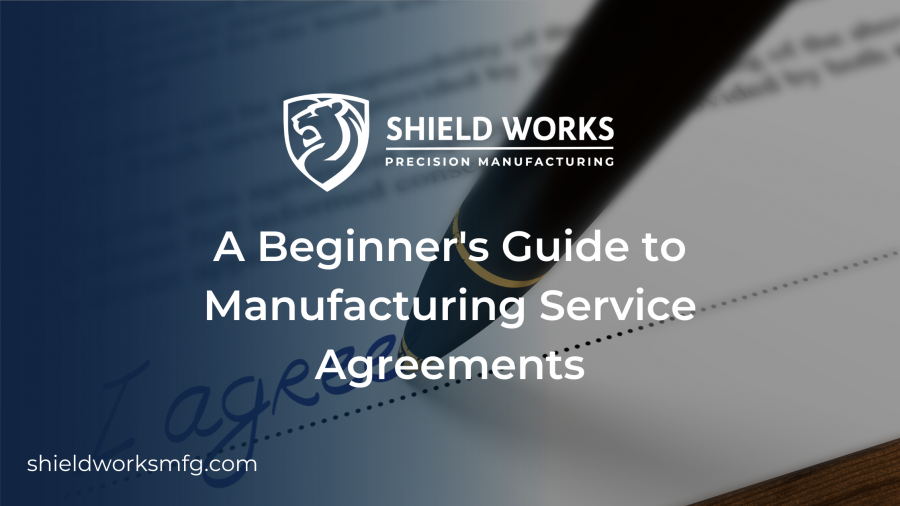A Beginner’s Guide to Manufacturing Service Agreements

Manufacturing is a critical component of many businesses, but not all companies have the resources or expertise to handle the production process in-house. That’s where outsourcing comes in, and a crucial tool for outsourcing manufacturing is a Manufacturing Service Agreement (MSA). In this beginner’s guide, we’ll take a closer look at what MSAs are, why they’re important, and what you need to know to get started.
What is a Manufacturing Service Agreement?
A Manufacturing Service Agreement is a contract between two parties – the manufacturer and the customer – that outlines the terms and conditions of the manufacturing process. The agreement covers everything from the type of product to be manufactured to the cost, timeline, and quality standards. Essentially, an MSA defines the relationship between the two parties and sets the expectations for the manufacturing process.
Why is a Manufacturing Service Agreement Important?
An MSA is important because it ensures that both parties have a clear understanding of their obligations and responsibilities. This clarity helps to minimize misunderstandings and disputes, which can lead to costly delays and rework. Additionally, an MSA protects the customer’s intellectual property and ensures that the manufacturer is producing the product to the customer’s specifications.
Another important aspect of an MSA is that it outlines the process for resolving disputes. In the event of a disagreement, having a well-defined process in place can help to minimize the impact on the manufacturing timeline and reduce the risk of costly legal battles.
Key Components of a Manufacturing Service Agreement
There are several key components that are typically included in an MSA. These include:
Product specifications
This section outlines the product design, materials, and manufacturing process.
Timeline
The timeline section specifies the expected start and completion dates for the manufacturing process.
Cost
The cost section outlines the payment terms, including the total cost, payment schedule, and any additional fees.
Quality Standards
This section outlines the quality standards that the manufacturer is expected to meet, such as industry standards or customer-specific requirements.
Intellectual Property
This section outlines the ownership of the product and any related intellectual property, such as patents or trademarks.
Confidentiality
The confidentiality section outlines the obligations of both parties to maintain the confidentiality of the manufacturing process and any related information.
Liability and indemnification
This section outlines the responsibilities of both parties in the event of any losses or damages.
Dispute Resolution
The dispute resolution section outlines the process for resolving any disputes that may arise during the manufacturing process.
Getting Started with a Manufacturing Service Agreement
Now that you have a better understanding of what a Manufacturing Service Agreement is and why it’s important, it’s time to get started. The first step is to identify your needs and the type of product you want to have manufactured. This will help you to determine the type of manufacturer you need to work with and the specifications that must be included in the MSA.
Once you have identified your needs, it’s time to start negotiating the terms of the MSA with the manufacturer. This is a critical step, so it’s important to work with an attorney who specializes in MSAs to ensure that you are getting the best deal possible.
How to Negotiate a MSA That Benefits Your Business
When it comes to a complex legal document that can have a significant impact on your business, you always want to ensure that you are getting the best deal possible. That’s why it’s important to know how to negotiate a good MSA that benefits your business. Here are some tips to help you get started:
Do Your Homework
Before you start negotiating the terms of the MSA, it’s important to do your homework. Research the manufacturer and understand their capabilities and limitations. This will help you to determine the type of agreement that you need and the terms that must be included in the MSA.
Work with an Attorney
An attorney who specializes in MSAs can help you to understand the legal implications of the agreement and ensure that you are getting the best deal possible. They can also help you to navigate any potential obstacles and negotiate the terms of the agreement effectively.
Outline Your Needs
Clearly outline your needs and the type of product you want to have manufactured. This will help you to determine the type of manufacturer you need to work with and the specifications that must be included in the MSA.
Be Realistic
When negotiating the terms of the MSA, it’s important to be realistic. Make sure that the terms are achievable and that you have the resources and expertise to meet the obligations outlined in the agreement.
Focus on the Big Picture
While it’s important to pay attention to the details, it’s also important to focus on the big picture. Make sure that the MSA meets your overall business goals and supports your long-term strategy.
Be Flexible
Be willing to compromise on certain terms in order to reach an agreement that benefits both parties. Remember that the goal is to create a mutually beneficial relationship that will last for the long-term.
Don’t Rush the Process
Negotiating an MSA can take time, so it’s important not to rush the process. Take the time to review the agreement carefully and ensure that you are comfortable with the terms before you sign.
By clearly defining the terms and conditions of the manufacturing process, an MSA helps to minimize misunderstandings, protect intellectual property, and ensure that the manufacturing process meets the customer’s expectations. Whether you’re a seasoned professional or just starting out, understanding MSAs is an important step in successfully outsourcing your manufacturing needs.
As a reputable manufacturing company with positive references in the industry, Shield Works always ensures our customers’ rights are well respected and honored. To know more about us, please feel free to contact us!
